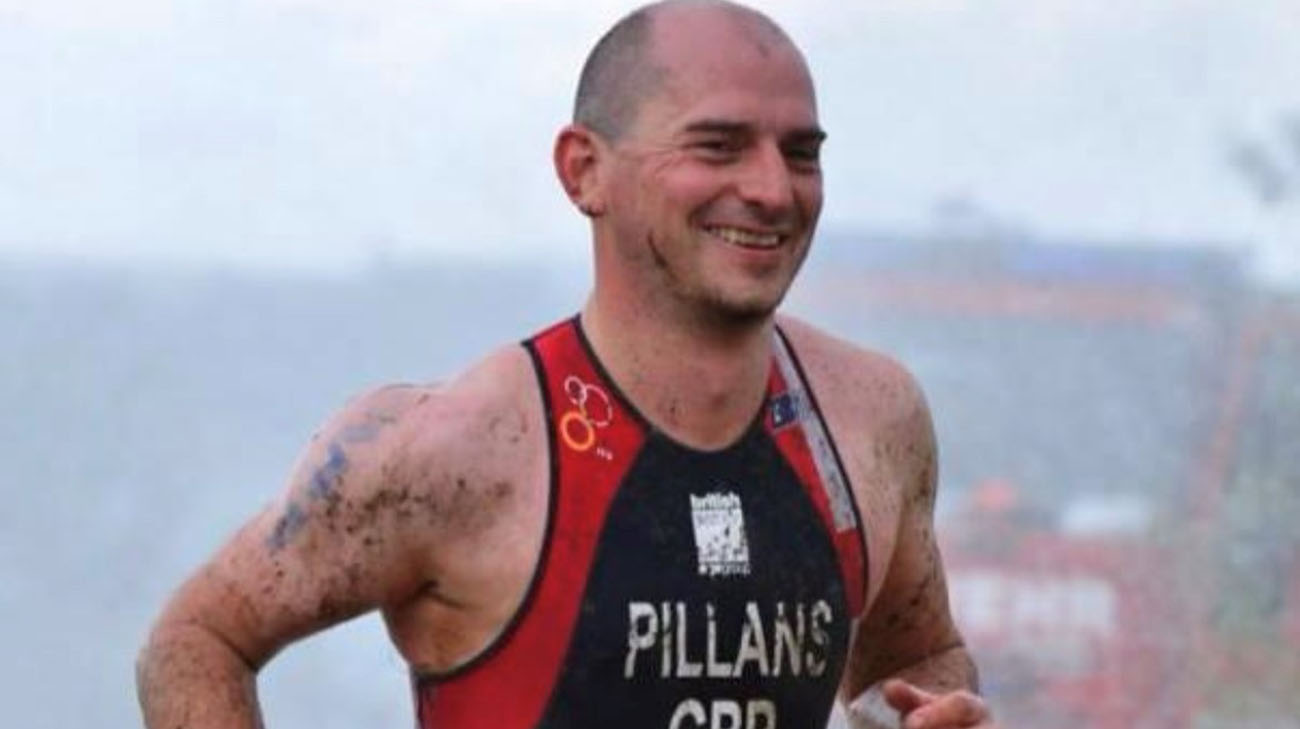
When Andy Pillans, age 50, developed a persistent cough that lasted for months, he did what most people would do, he went to his local GP to get checked out. As an avid runner and triathlete who has competed in five Age Group World Championships, Andy didn’t want a chest infection to slow down his training.
“Within five days of going to the doctor, they discovered a lump on my left lung,” he says.
Andy followed up his initial tests with a PET scan (positron emission tomography), which showed additional areas of concern in his spleen and lymph nodes.
“The fear was my chest infection was masking their ability to get good images, so they asked me to come back in three months,” he says.
Upon returning in April and again in June, his PET scan still showed signs of irregularity in all the same areas.
“At that point they told me I had late stage lung cancer,” says Andy. “It was not the nicest news to have to tell my wife and sons. The outcome looked horrendous.”
Before Andy was set to start radiotherapy, his doctors wanted one more scan prior to beginning treatment.
“The latest image showed everything was OK apart from my lung, so my cancer was reclassified to early stage,” he says.
This welcome news meant Andy was a candidate for a lobectomy (partial removal of the cancerous part of the lung). Since he had private health insurance through his employer, his oncologist referred him to Mr. Jeremy Smelt, consultant and robotic surgeon at Cleveland Clinic London.
“When it comes to cancer, you want to treat it as soon as possible because it’s stressful to wait,” says Andy.
Andy first met Mr. Smelt in October 2023 to go over his options. He explained to Andy that keyhole robotic assisted lobectomy was the best course of treatment for his cancer. Three weeks after his initial appointment, Andy had the surgery.
“It’s a safe and clean surgery with very little blood loss, less pain and trauma to the body and decreased scarring,” says Mr. Smelt. “Cleveland Clinic London is set up for doing complex procedures, and I have ready access to the surgical robot which helps get the best outcomes for this operation..
“Through the keyhole I use a camera and long instruments to perform the lobectomy,” he explains. “I have a great visual field and movement accuracy which leads to less manipulation and less neuropathic pain.”
Although he was a little sore, Andy had very little pain following surgery and only stayed in the hospital for three days.
“Physio had me up and walking the day after surgery,” says Andy, who was very impressed with the facilities, food, staff and care he received.
In addition to quick access to care, Andy was also eligible for targeted therapy to reduce the chances of his cancer coming back.
“Andy had molecular drivers which put him at higher risk of recurrence,” says Mr. Smelt. “At Cleveland Clinic London we have very good oncology partners, and we were able to refer Andy for targeted oral therapy.
“The advantage is it has very minimal side effects in other areas of the body, so no hair loss or skin problems,” he adds.
Although he lost a quarter of his lung function, Andy hasn’t let it slow him down. He returned to work three weeks after surgery.
“I’m back to running twice a week and walking 30 minutes a day. I can do pushups and sit ups,” he says. “Breathing is harder, but I’m told that’s normal for what I’ve been through.”
“Andy’s lungs have recovered well, and he is already achieving remarkable things so soon after his surgery.” says Mr. Smelt.
Andy is gearing up to do a half ironman in June if he’s up for it.
“It’s a goal to work towards,” says Andy, who has regained some of the weight he lost due to his illness.
Although he’s hoping his cancer doesn’t recur, he knows where he’ll come for treatment if it does.
“I am really impressed with Jeremy and Cleveland Clinic London,” says Andy. “I would recommend Cleveland Clinic London to anyone. If my cancer comes back, this is where I’ll come.”
Related Institutes: Heart, Vascular & Thoracic Institute (Miller Family)

